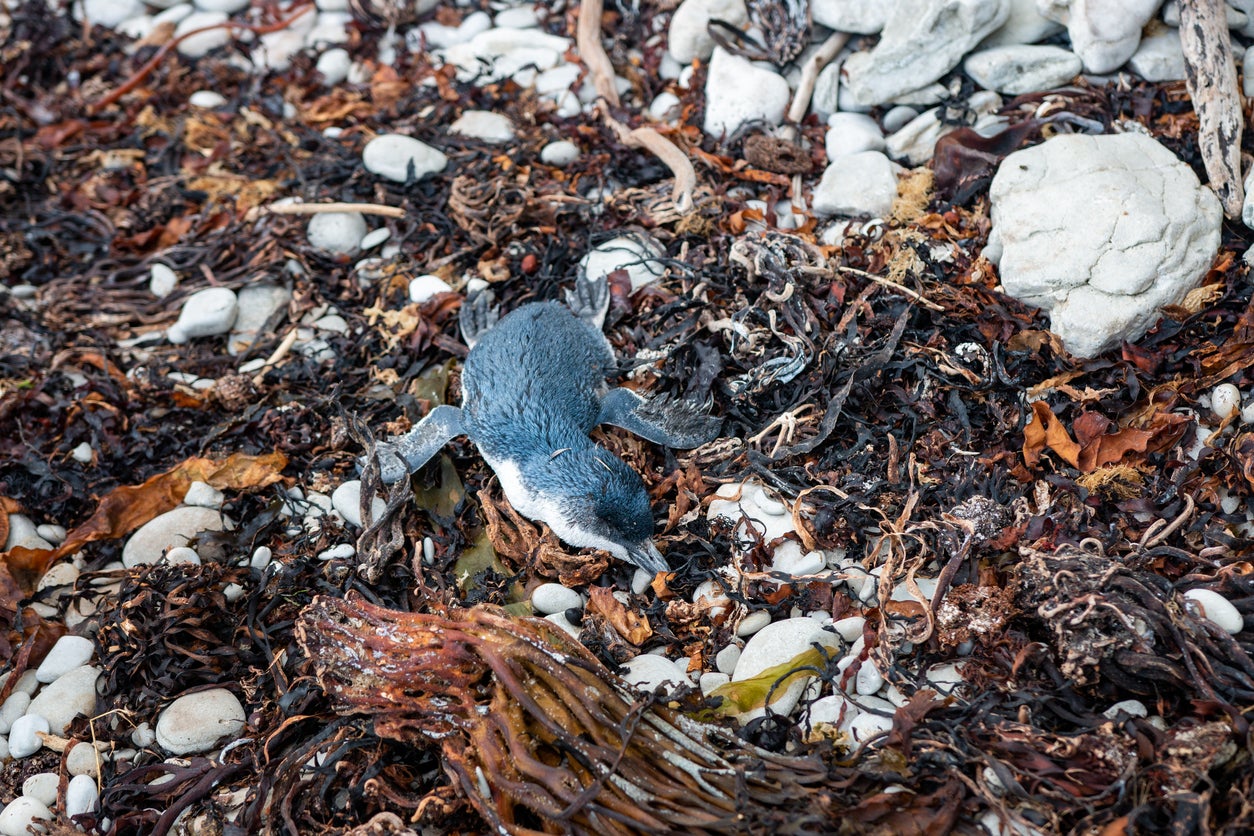Hundreds of the world’s smallest penguin wash up dead in New Zealand
Conservationists say mass die-offs have been caused by rising ocean temperatures

Hundreds of the world’s smallest penguin are washing up dead on New Zealand beaches.
The kororā, also known as the little blue penguin, are being found in the northern-most region of the North Island.
The NZ Department of Conservation told RNZ that an estimated 200 tiny birds were washing up on the area’s beaches each day, and that the mass die-offs were being caused by rising ocean temperatures.
The ocean is absorbing more than 90 per cent of the excess heat trapped in Earth’s atmosphere, largely due to the burning of fossil fuels.
Kororā population numbers are also being affected by prolonged El Niño weather conditions, which increase sea-surface temperatures and onshore winds in New Zealand, making it more difficult for the tiny penguins to nest and feed.
Graeme Taylor, from the conservation department, told the local news outlet: “In the past, you might have had a lot of good years followed by one bad year where a lot of birds die, but then they rebound in those good years.
“But if we start to see the balance tipping towards more bad years versus good years, then they’re just not going to be able to recover.”
The kororā, which is just under 10in (25cm) tall and weighs about a kilogram, is found in New Zealand and on the coastlines of southern Australia.
The species is classified as at risk of extinction, with numbers in significant decline over the past decade.
Mass die-offs with more than 1,000 dead penguins used to be a once-in-a-decade event, the Department of Conservation reports. But the climate crisis is driving the frequency of marine heatwaves and having a detrimental impact on the breeding seasons for kororā.
Conservation experts monitoring the North Island area have also found dozens of other dead birds including albatross, dotterels, fluttering shearwaters and diving petrels.
Localised extinctions following marine heatwaves have also been reported for species such as bull kelp and starfish.
Rising ocean heat, combined with more extreme and frequent storms, will likely mean more mass die-offs of penguins and other marine life.
Subscribe to Independent Premium to bookmark this article
Want to bookmark your favourite articles and stories to read or reference later? Start your Independent Premium subscription today.

Join our commenting forum
Join thought-provoking conversations, follow other Independent readers and see their replies